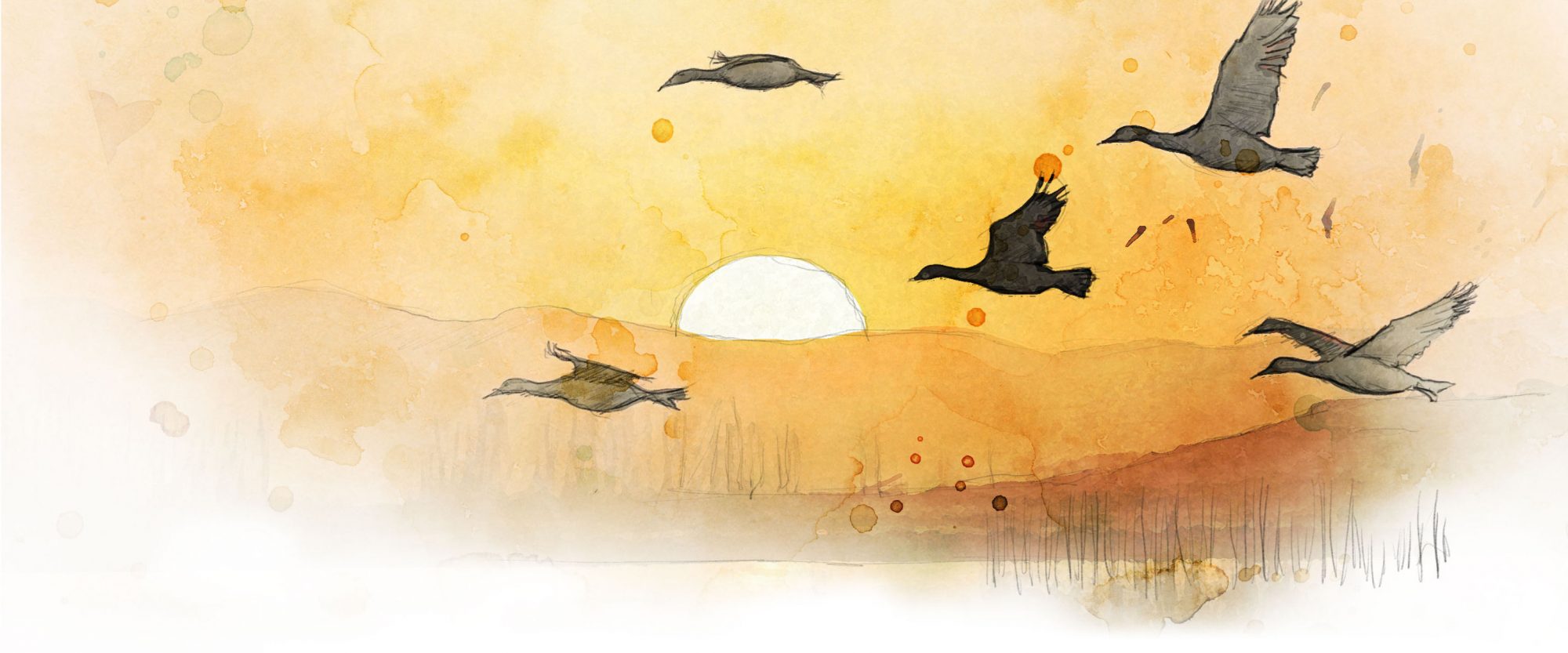Who We Are
Our work is made possible by a talented team of staff and an extensive network of partners across British Columbia. PICS staff and collaborators include many of the leading climate researchers, practitioners, and community-based experts in the province.
To reflect our values and mandate, we work closely with communities historically underrepresented in climate research and policy. We are committed to climate solutions that uphold principles and practices of justice, equity, diversity, and inclusion.
Staff
Our team has diverse experience that support collaborative and engaging approaches to research, networking, and knowledge sharing at the intersection of justice, adaptation, and mitigation. Our staff are located on Lək̓ʷəŋən (Songhees and Esquimalt) and W̱SÁNEĆ territories in Victoria and across territories throughout British Columbia.
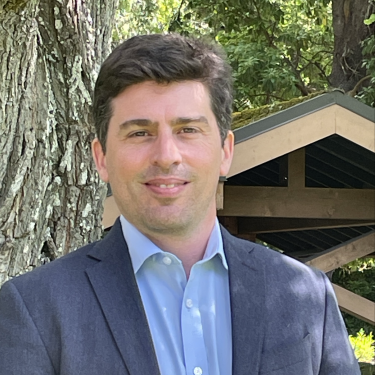
Daniel Arbour (He/Him)
Partnerships and Grants Specialist
Daniel Arbour (He/Him)
Daniel Arbour has a passion for public service and partnership building. His career has included administrative, program management, and evaluation roles in the environmental and community economic development fields. In recent years, Arbour has served as a local government elected official in the Comox Valley, where he has advanced climate policies and initiatives at the regional, provincial, and federal levels.
Based on his track record of partnership building and grants leveraging, Arbour has been selected to lead international program evaluations in Europe and Northern Africa for Natural Resources Canada; and as a grants jury for the BC Climate Ready Seafood Program and for the Federation of Canadian Municipalities Sustainable Communities Award.
Arbour holds an MA from the School of Environmental Studies at Royal Roads University; a BA in Geography and Ecology from the University of British Columbia, and a Certificate in Public Policy Analysis from the London School of Economics.
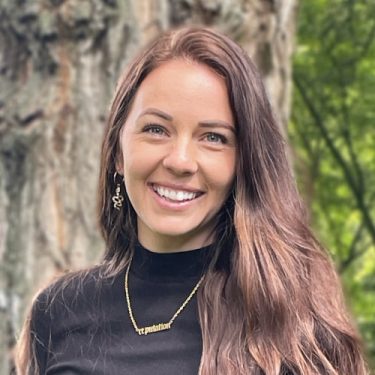
Christy Ascione (She/Her)
Communications Specialist
Christy Ascione (She/Her)
Christy Ascione is an accomplished writer with a robust background in science communications and education. She has authored several high school STEM textbooks published by eDynamic Learning, and her writing has been featured in Science Journal for Kids.
She holds a BEd from the University of Alberta and has more than seven years of experience in scientific writing, education, and engagement.
Throughout her career, Ascione has focused on distilling complex environmental science research into easily understandable information for diverse audiences. Most recently, she worked with MIREC Canada as its communications specialist, where she focused on explaining the effects of environmental chemical exposure on maternal and child health. She has also worked as an education specialist with two marine conservation non-profits in South Florida, where her work bridged the gap between scientific research and community awareness.
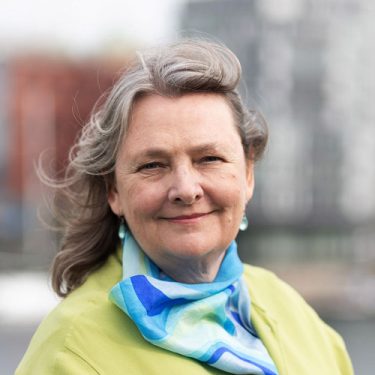
Stephanie Cairns (She/Her)
Senior Director, Strategy and Foresight
Stephanie Cairns (She/Her)
Stephanie Cairns has three decades of experience working with leading climate change and environmental non-governmental organizations, policy institutes, and expert panels. She was a founding staff member with the Pembina Institute and Smart Prosperity Institute, where she directed programs on circular economy, sustainable communities, climate policy and carbon pricing, and is currently a Coordinating Lead Author for the North American Biodiversity and Climate Change Assessment.
Cairns has advised leaders at every order of Canadian jurisdiction. She has been named the University of Guelph’s visiting Kinross Chair in Environmental Governance, and to the Council of Canadian Academies’ Expert Panel on Circular Economy, Alberta’s Climate Change Advisory Panel, and Canadian Heritage’s Panel on Ecological Integrity of National Parks. She was the first woman appointed as national president of the Canadian Parks and Wilderness Society.
Cairns holds a MSc in Corporate Environmental Management from the International Institute for Industrial Environmental Economics at Lund University, Sweden, and a BA in Environmental Studies, Political Science, and Economics from the University of Toronto.
Most recently, she worked with the International Institute for Sustainable Development, and helped establish the Municipal Natural Assets Initiative. Stephanie has also served on the Boards of the Galiano Conservancy Association and the IISD-Experimental Lakes Area.
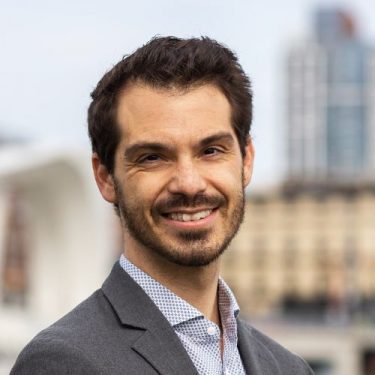
Dylan Clark (He/Him)
Director of Research Mobilization
Dylan Clark (He/Him)
Dylan Clark has deep expertise in climate change policy development, adaptation research, and impact modelling. He has experience working both in and outside of government to develop new climate policies and improve decision-making processes. Clark has also contributed to major national climate assessments, including as a lead author on The Health Costs of Climate Change: How Canada can adapt, prepare, and save lives.
Clark holds a MSc from McGill University and a BSc from Iowa State University. He has been recognized for his work as a two-time National Geographic Young Explorer, a Fulbright recipient (declined), and has testified as an expert witness before the Senate Standing Committee on Fisheries and Oceans.
Prior to joining the Pacific Institute for Climate Solutions, Clark was the research lead for adaptation at the Canadian Climate Institute.
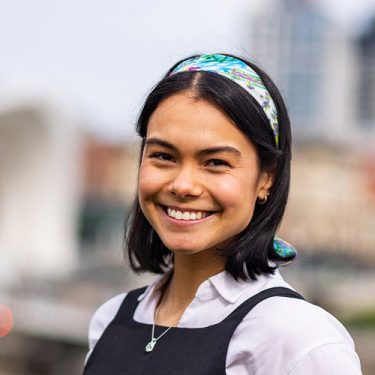
Alyssa Hill (She/Her)
Project Analyst
Alyssa Hill (She/Her)
Alyssa Hill is a climate researcher who has collaborated with government representatives, non-profits, consultancies, and industries throughout Canada and internationally.
Hill is interested in the process of moving from assessing climate risk to transformative resilience. She is passionate about centering climate justice and equity in her work at PICS.
Hill holds a BSc from Western University and a MCC from the University of Waterloo. She previously worked for the Climate Risk Institute, researching climate change impacts and supporting large scale climate change risk assessments. Hill also founded and produced the Tiny Activist podcast.
In her spare time, you may find Hill rock climbing, trying a new recipe, or planning her next adventure.
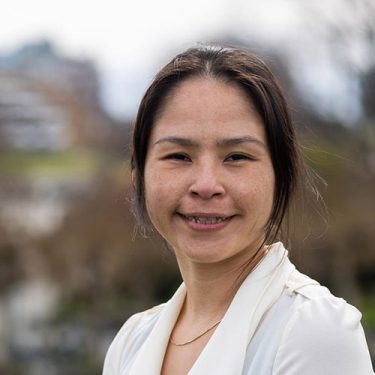
SIAPELWET Edna Jack (She/Her)
Finance Assistant
SIAPELWET Edna Jack (She/Her)
SIAPELWET Edna Jack’s roots are with Stz’uminus First Nation – Ladysmith, B.C. – where she grew up learning to live off and care for the land from her grandparents and late great grandparents. As a Coast Salish First Nation person, SIAPELWET provides a holistic perspective that understands the interconnections between communities, ecosystems, and climate change.
Within B.C., SIAPELWET has diverse experience working in non-profit organizations, in all orders of government, and within First Nations. These experiences sparked her interest in contributing to an organization that works towards creating positive and healthy relationships between the land, water, and communities in an era of climate change.
SIAPELWET holds an Accounting and Payroll Administrator Diploma from CDI College and a Business Certificate from Camosun College. She is finishing courses at Camosun College for her second diploma in accounting while working with PICS.
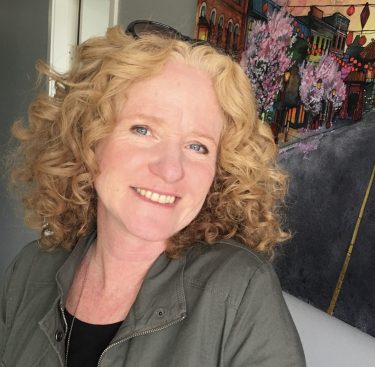
Kathleen Laird (She/Her)
Assistant to the Executive Director
Kathleen Laird (She/Her)
Kathleen Laird brings a wealth of administrative experience to PICS, honed through her tenure at the University of Victoria, running a local small business, and her volunteer experiences.
Prior to joining PICS, Laird served with UVic’s Human Resources, Events, Co-op and Career office, and with the office of the Dean of Education.
Laird holds a BA in Urban Geography from UBC, and specialized education in Landscape Design and Horticultural Therapy. When she is not working at PICS, she runs a successful consulting business with a focus on landscape design, restoration, and community building. Understanding the importance of volunteering in her community, she has experience with the South Jubilee Neighbourhood Association Board, Pacific Animal Therapy Association, and the Citizens Counselling Centre of Greater Victoria. She loves to travel and research new advances in horticulture.
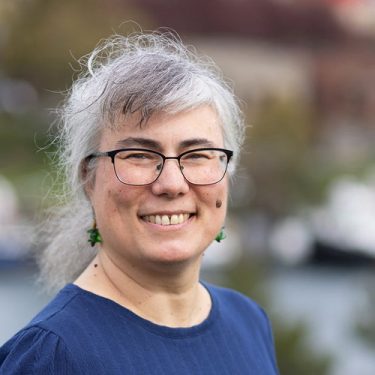
Dr. Vanessa Lueck (She/Her)
Researcher-in-Residence, Coastal Adaptation
Dr. Vanessa Lueck (She/Her)
Dr. Vanessa Lueck’s work focuses on justice and equity, sustainable coastal adaptation, adaptation governance, and the role of insurance in climate adaptation. With the Living with Water project, she focuses on leveraging Indigenous knowledges and values, nature-based solutions, and innovative governance models to drive local sustainable coastal climate adaptation.
Lueck has been active in governance and sustainability at all scales ranging from local health care policy implementation to international climate change conferences and marine awareness for the maritime industry. She holds a PhD in Sustainability from the School of Sustainability at Arizona State University, a JD from University of Minnesota Law School, and a BA in Political Science from the University of Chicago.
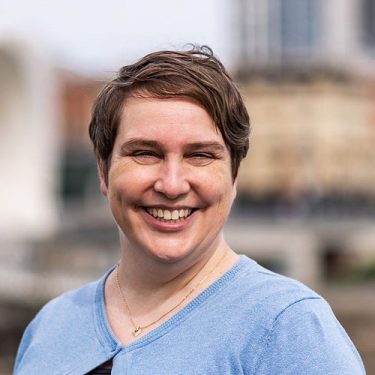
Cindy MacDougall (She/Her)
Communications Manager
Cindy MacDougall (She/Her)
Media Enquiries: 250 853-3626
Cindy MacDougall is a communications professional with deep experience in telling the stories of people making a positive impact in communities across Canada. She has a particular interest in stories at the intersection of climate change and human health.
MacDougall was named a finalist for Organizational Excellence in the 2015 BC Premier’s Awards, and received the 2004 Society of Gynecologists and Obstetricians of Canada Journalism Award for Excellence in Women’s Health Reporting. She was born and raised on Unama’ki (Cape Breton Island) on the East Coast, where she witnessed the toll heavy industry can have on a community’s wellbeing.
She holds a Bachelor of Journalism (BJ) from Carleton University, Ottawa.
Before joining PICS, MacDougall worked as the media liaison for Royal Roads University, and in several B.C. ministries with Government Communications and Public Engagement. She has also worked as a journalist throughout Canada, including in Sǫǫ̀mbak’è in Denendeh (Yellowknife, Northwest Territories) as regional health reporter for CBC North.
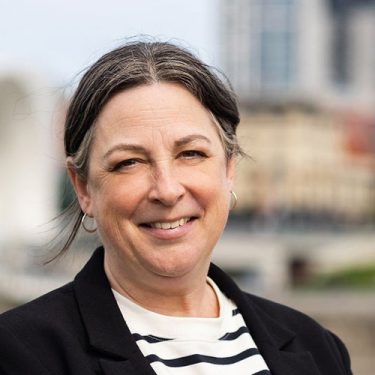
Emily MacNair (She/Her)
Director of Programs and Partnerships
Emily MacNair (She/Her)
Emily MacNair is an accomplished program developer and project manager, who has focused her career on creating innovative tools and resources for climate change adaptation. Foundational to her approach is collaboration and joint project development with a broad range of individuals, organizations, and institutions in communities across B.C., as well as a focus on creating accessible and practical resources for adaptation.
MacNair co-authored the Climate and Opportunity Assessment for the B.C. Agriculture Sector. She went on to lead strategic climate adaptation planning processes for agriculture in eight regions of the province and for 10 years managed the delivery of adaptation focused programs for the sector. MacNair also developed the first food security assessment for the Capital Regional District.
MacNair holds a MA of Environmental Studies from York University and a BA in Anthropology from the University of British Columbia. She is the former director of the Climate & Agriculture Initiative BC.

Dr. Ian Mauro (He/Him)
Executive Director
Dr. Ian Mauro (He/Him)
Dr. Ian Mauro is the executive director of the Pacific Institute for Climate Solutions and professor of Environmental Studies at the University of Victoria.
As a scientist and filmmaker, Mauro’s work explores climate change, sustainability, and the vital role of local and Indigenous knowledges. He is committed to community-based and Indigenous-led participatory approaches and has worked with First Nations, Métis, and Inuit communities across many territories.
Mauro has developed numerous, award-winning climate-change initiatives, including: Qapirangajuq: Inuit Knowledge and Climate Change, co-directed with acclaimed Inuk filmmaker Zacharias Kunuk, and Beyond Climate, narrated by David Suzuki.
Mauro holds a BSc in Environmental Science and a PhD in Geography. He is a former Canada Research Chair of Human Dimensions of Environmental Change at Mount Allison University, a Fellow of the Royal Society of Canada’s College of New Scholars, Artists and Scientists, and an Apple Distinguished Educator. He has served on expert panels related to food security, energy issues, and climate change across Canada.
Prior to joining PICS, Mauro was the executive director of the Prairie Climate Centre at the University of Winnipeg and led the creation of the Climate Atlas of Canada.
Mauro is a husband and father, and his climate action strives for a safe and livable planet for all future generations.
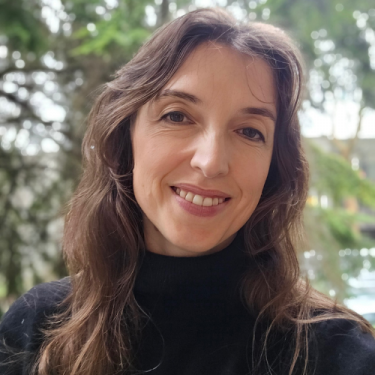
Dr. Sara Nelson (She/Her)
Climate Foresight Lead
Dr. Sara Nelson (She/Her)
Sara Nelson is a geographer dedicated to critical, interdisciplinary, and policy-relevant scholarship for climate action. She has diverse research experience on the political and economic dimensions of environmental management and climate change adaptation, and she is passionate about working with community and movement organizations, rights holders, and scholars to build impactful research partnerships.
Nelson’s work is published in leading academic journals in geography and environmental studies, and in several edited volumes and policy reports. She is a Fellow with the Climate and Community Institute and was previously a Fellow with the Intergovernmental Platform on Biodiversity and Ecosystem Services (IPBES), where she served as an author on the IPBES Values Assessment. She was awarded a Killam Postdoctoral Fellowship at the University of British Columbia (UBC) Department of Geography and a Simons Postdoctoral Fellowship at the UBC School of Public Policy and Global Affairs.
Nelson holds an MA and PhD in Geography from the University of Minnesota, and a BFA from Tufts University. Prior to joining PICS, she was the Senior Research Manager at the UBC Centre for Climate Justice.
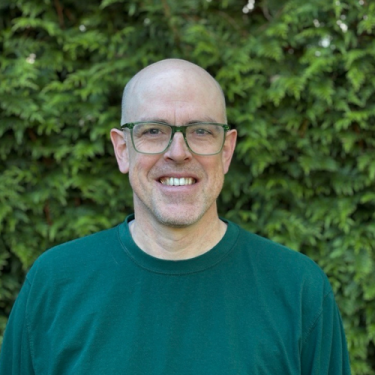
Jeremy Riishede (He/Him)
Administrative Manager
Jeremy Riishede (He/Him)
Jeremy Riishede is inspired by the pursuit of knowledge and values the capacity of research to make meaningful change in society. He has spent many years supporting research at the University of Victoria through senior administrative positions at a variety of research centres, and has facilitated research exploring health equity in public health, harm reduction, the social determinants of health, and sustainable energy systems.
Over the past two decades he has worked in a number of different roles on campus, as a research assistant and in a variety of administrative positions. He has worked for UVic Research Accounting, the History and Nursing departments, the Canadian Institute for Substance Use Research, and the Centre for Studies in Religion and Society.
Riishede was instrumental in the development of a national student training program based at the Astronomy Research Centre (ARC) at UVic. He then spent four years as administrative coordinator at the Institute for Integrated Energy Solutions (IESVic) before becoming the project coordinator of the Substance Drug Checking Project in 2023.
He holds a BA in Sociology and History from the University of Victoria.
Much of Riishede’s spare time is spent playing music, reading books, cycling, and enjoying the many beaches and forests that surround his family’s home in Lək̓ʷəŋən territory in Esquimalt, B.C.
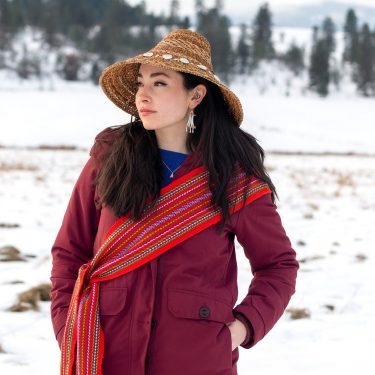
Janna Wale (She/Her)
Indigenous Research and Partnerships Lead
Janna Wale (She/Her)
Janna Wale is Gitxsan from Gitanmaax First Nation and is also Cree-Métis on her mother’s side. Where possible, Wale uses a complex human-environmental systems approach and believes that this lens can be used when looking for ways to bridge western and Indigenous climate work.
In 2025, Wale received the Women of Influence Nanaimo (WIN) Award for STEM. She was selected as a Top 30 Under 30 Sustainable Youth Leader in Canada by Corporate Knights in 2024. She was also a finalist for the Community Advocate of the year award through Foresight Canada and was selected for a Community Award – Emerging Leader through the B.C. Achievement foundation. In 2023, Wale was the recipient of the Anitra Paris Memorial Award for female youth climate leadership through Clean Energy BC. She has published two reports in collaboration with the Yellowhead Institute and was named as an Indigenous Trailblazer through Diversity in Sustainability.
Wale holds a Bachelor of Natural Resource Sciences (B. Nrsc.) from Thompson Rivers University, and a MSc in Sustainability from UBC Okanagan, where her work focused on climate resilience in Indigenous communities, using a seasonal rounds model.
Our History
PICS was created in 2008 with an endowment from the Government of British Columbia. The government’s large commitment to evidence-based climate policy and the multi-university structure of PICS were groundbreaking at the time and remain core strengths of the organization.
Our Network
PICS brings together the research strengths and capacity of our university network to advance transformative climate solutions for B.C. and the world.
The world-class universities that make up our network include: the University of Northern British Columbia; Simon Fraser University; the University of British Columbia; and the University of Victoria. Our network is our unique strength.

Governance
PICS is hosted and led by the University of Victoria and is overseen by an Executive Committee, which is primarily responsible for strategic direction and financial oversight.
The Executive Committee comprises the following members:
- Vice-Presidents of Research and Innovation from the University of Northern British Columbia, Simon Fraser University, the University of British Columbia, and the University of Victoria (chair);
- The University of Victoria Vice President Indigenous;
- The University of Victoria Dean of Social Sciences;
- A representative from the Government of British Columbia, Climate Action Secretariat;
- A representative from the Government of Canada, Ministry of Environment and Climate Change; and
- The PICS Executive Director.
